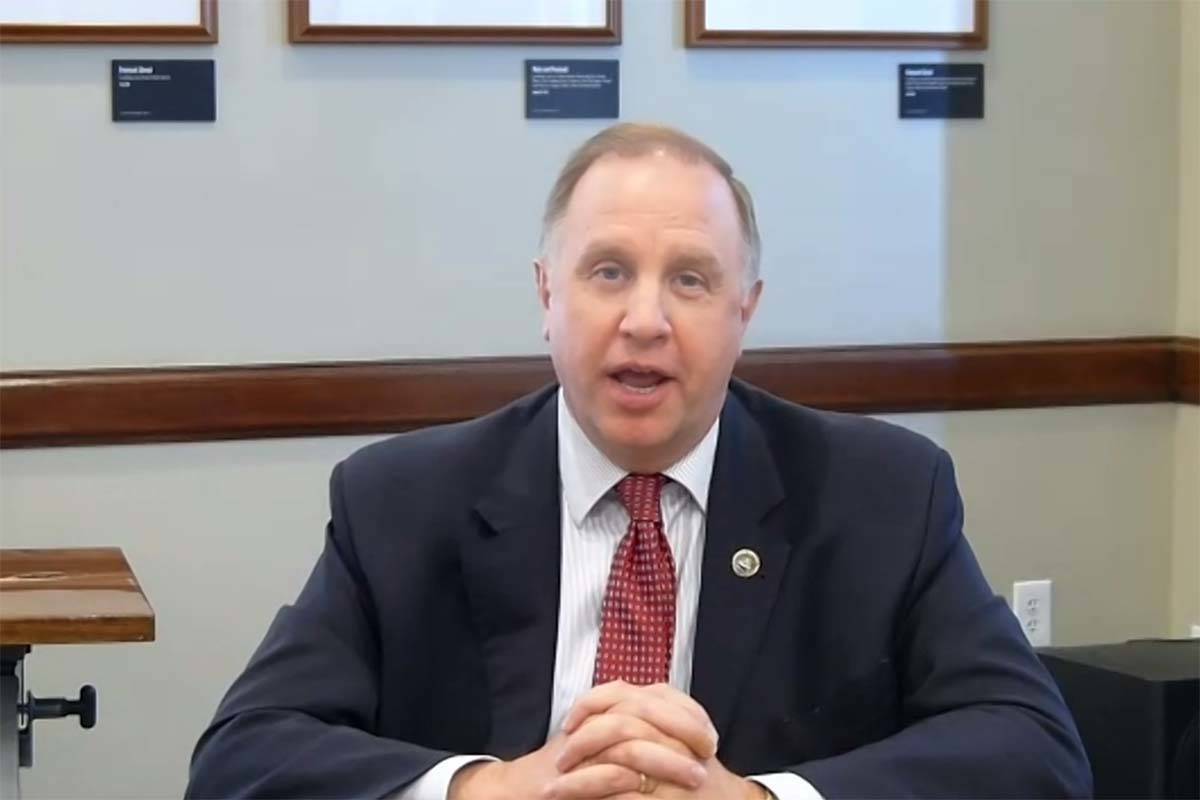FBI sees fewer cybercrimes than expected during COVID-19 pandemic
Las Vegas FBI agents have seen a number of recurring cybercrime themes during the COVID-19 pandemic, though the local field office has received fewer than 30 reports of outbreak-related cybercrimes in Nevada since March.
“It’s actually very low. It’s not really what I expected, but thankfully that’s the case in Nevada,” Supervisory Special Agent Hector Sepulveda said Thursday, alongside Special Agent in Charge Aaron Rouse, during a virtual State of the Field Office address.
The livestreamed event was held exclusively for alumni members of the FBI’s Citizens Academy.
Sepulveda, who leads the Las Vegas field office’s cyber squad, said cybercrimes throughout the pandemic have included email phishing scams with links to websites purporting to be official government websites, fake online N95 mask deals and, because of an increase in online shopping, hackers deploying malware to a company’s shopping cart to skim credit card information during checkout.
“The reality is that there are people that are going to try and take advantage of the crisis, everything from phony cures or even attacking somebody’s ability to collect stimulus,” Rouse said.
The agency has even seen data server attacks on health care providers and research companies attempting to create a vaccine, Sepulveda said, “which is very sad.”
“They’re basically our first responders in this crisis,” he said of health care workers. “There was a moment where we were hoping criminals would not target the health care industry, but they have.”
The Las Vegas field office is among 15 state and federal entities that make up a COVID-19 task force dedicated to investigating pandemic-related scams in Nevada. The task force was formed in April by Nevada U.S. Attorney Nicholas Trutanich and Nevada Attorney General Aaron Ford.
“Hackers, criminal actors are always trying to exploit whatever’s current,” Sepulveda said, adding that the task force meets on a weekly basis. “COVID is the same.”
Rouse said the pandemic has not slowed down his field office, though he and his staff recognized early on that altered work schedules would be necessary.
“We’ve found a way to make it work, and our people are being very smart,” he said. “We’ve been arresting quite a lot, all across the state. Serious criminals are being taken off the streets.”
Despite the global health crisis, according to Rouse, the FBI in Las Vegas continues to identify and arrest “major dealers and gangs.”
“The FBI can’t take a day off,” he said.
To report COVID-19 fraud, visit www.ic3.gov or www.tips.fbi.gov.
Contact Rio Lacanlale at rlacanlale@reviewjournal.com or 702-383-0381. Follow @riolacanlale on Twitter.
Tips from the FBI to protect yourself from pandemic scammers
— Use strong passwords and two-step verification when the option is available.
— Avoid using the same password across multiple channels and accounts.
— Avoid clicking on email or text message links from people you don't know. Hover over a link before clicking to see where it's sending you.
— Keep your firewall turned on.
— Install or update your anti-virus software.
— Turn off your computer when you're not using it, because your device is more susceptible to spyware and other cyberattacks if it is always on.



















